FAKE: Confronting hatred: How to react to an anti-LGBTI murder
Colin Stewart is a 45-year journalism veteran living in Southern…
THIS ARTICLE WAS BASED ON DOCUMENTS THAT, ON INVESTIGATION, APPEAR TO HAVE BEEN FAKED. It has been labeled “FAKE” rather than simply removed from the blog. As a result, any readers who follow links to it will see the “FAKE” label rather than merely receiving an “Oops! That page can’t be found” error message.
— Colin Stewart, editor/publisher of this blog
This is the second of several articles about Kenyan LGBTI activist/journalist Joseph Odero, targeted for assassination for his work on behalf of a murdered LGBTI teenager. Despite a nearly fatal attack in January, Odero testified in court about what the murdered youth told him, and now he needs a kidney transplant to survive.
To help pay for that operation, donate to the Joe Odero Fund. Because Odero remains at risk from further attacks, his current location is undisclosed and protective pseudonyms are used throughout this article.
Confronting hatred:
How to react to an anti-LGBTI murder
By Colin Stewart and Joseph Odero
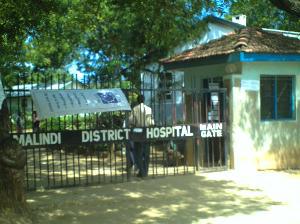
Joe Odero did not know what he was getting into when he walked into Muhadh Ishmael’s hospital room on Dec. 15, 2015.
He had heard through members of the LGBTI community in east Kenya that Ishmael had been attacked because of his sexuality.
Such attacks occur from time to time in Kenya, even though it is far from Africa’s most homophobic society. From its years as a British colony, Kenya still has a law that calls for 14 years in prison for sexual intimacy between men, though the law is rarely enforced. The Anglican Church of Kenya last year excommunicated three priests for allegedly being homosexuals. In 2013, Joe himself was thrown out of Egerton University in Nakuru, Kenya, for seeking acceptance of LGBTI students there.
Joe became an activist in hopes of improving the lives of LGBT Kenyans.
But Ishmael’s case was a bit different, as Joe learned when he interviewed him in his hospital bed on Dec. 15 and 16.
Ishmael, age 17 at the time of the interviews, was born with a body that combined male and female features — both men’s and women’s genitalia and, after he reached puberty, enlarged breasts. That intersex body caused him much trouble in his family, who did not accept his desire to be considered a man.
The name that Ishmael’s family used for him was Muhadh Hafswa Said — a female name. He preferred to be called “he,” so he adopted the masculine name “Ishmael.”
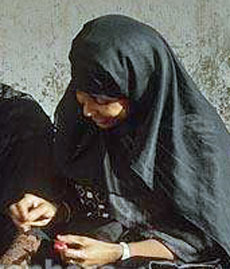
Still, his family insisted on treating him as a girl. His parents and his uncles required him to wear a buibui, the shawl typically worn by Muslim women in East Africa. They locked him indoors, hid him from visitors and often beat him, he told Joe. Ishmael was not allowed to go to the mosque or to attend school. His parents thought that sending him to school would be a waste of money, because he would die soon.
Ishmael didn’t obey his family’s rules. Instead of remaining hidden, he went out to visit members of Malindi’s LGBTI community, where he became well known as a gay man.
He was always told that he was a curse on the family, that he brought them misery. He was blamed of any misfortune that befell them.
In October 2014, his father died, leaving Ishmael an orphan. He was turned over to the custody of his uncle, who insisted that Ishmael must change his ways. Ahmed ordered him to think of himself as a woman and to behave like a woman. The uncle had him beaten by six men as punishment for misbehavior — for allegedly disrespecting the family and bringing shame on them. But Ishmael did not change his mind or his behavior.
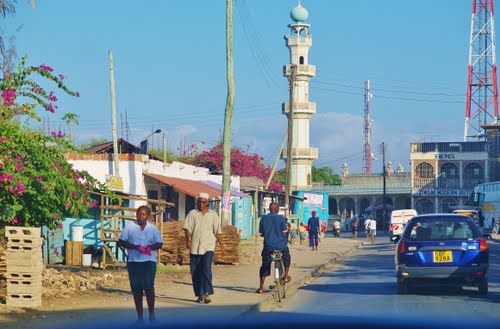
After the death of his grandmother in November 2015, his uncle had had enough of Ishmael’s stubbornness. He summoned Ishmael again and, this time, in his sitting room in the presence of his son, Ishmael’s cousin, he introduced Ishmael to four young men. They also were Ishmael’s cousins, the uncle said, who had come from Shimba Hills, southwest of Mombasa, to give their condolences to the family on the death of Muhadh grandmother. He asked Ishmael to accompany them to Kilifi town to do some shopping. Ishmael went with them in their vehicle; he did not see its license plate.
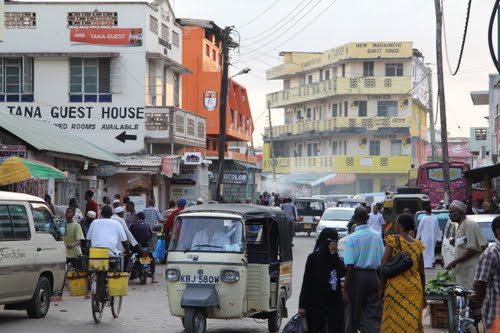
Soon after he got in, they seized him and taped his eyes shut. They drove him to a forest, where they stripped him naked and gave him some yellow small tablets to take. He believed it was largactil, which he understood to be a drug that is used to make mentally challenged people docile or inactive. They roughed him up, injuring his jaw. They told him to say his final prayers and asked if he had any words he wanted them to say to world after his death.
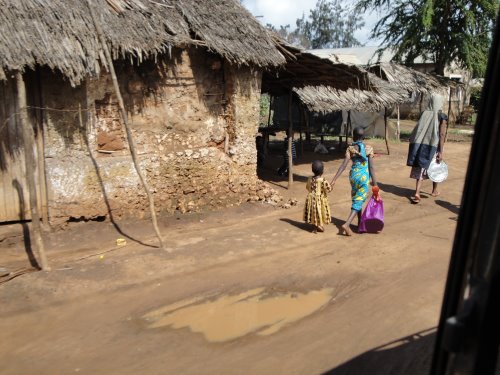
Then they cut off his penis.
Ishmael fainted.
When he revived, he was in intense pain, lying in Arabuko Sokoke Forest, south of Malindi. He had no phone. He made his way to a nearby Catholic church. A man who was driving by on his way to work picked him up and took him to Malindi District Hospital.
He was admitted to the hospital and was treated for his injuries. No relative visited him. No one came to see him except a friend whom he contacted on a borrowed phone. Through that friend, members of the LGBTI community of east Kenya learned what had happened. They told Joe, who sent his editor, Colin Stewart, a message stating that he wanted to interview Ishmael in the hospital. Colin and Joe conferred. The trip would involve a 500-mile bus trip from Kisumu to Mombasa, then a taxi ride for the remaining 70 miles to Malindi, which has a population of about 200,000. Colin sent Joe $100 for the trip.
Joe arrived in Malindi on Dec. 15 and went immediately to the hospital. There he found Ishmael in his hospital bed, weak, obviously in pain, struggling to talk because of an injury to his jaw and a feeding tube inserted through his nose. He spoke in a low voice, but was coherent.

In conversations that day and again on Dec. 16, Ishmael told Joe his story. Joe took a photograph of Ishmael in the hospital and returned to Kisumu. He worked with Colin to prepare an article for publication in the blog. Their plan was to use a pseudonym for Ishmael in order to spare him from any troubles that publication might provoke. The article was almost ready for publication when Joe learned from a friend in Mombasa that Ishmael had died.
Despite routine medical attention that he had received, Ishmael had continued to lose blood. He breathed his last at the hospital on Dec. 21. As a privileged American, Colin was surprised that a hospital could allow that to happen. Joe was sad, but not surprised. He explained that Ishmael had no money, so the hospital did not give him adequate medical care. The doctors and nurses had not paid much attention to Ishmael’s condition, Joe said, because no one had paid them the small back-door payments they demand in return for providing attentive service to a patient.
The Erasing 76 Crimes blog published Ishmael’s story on Dec. 23 under the headline “Intersex in Kenya: Held captive, beaten, hacked. Dead.”
Ishmael’s family refused to accept his body for burial, or even to acknowledge that Ishmael was a member of the family. They wanted nothing further to do with him, and certainly not his unpaid hospital bill of 25,780 Kenyan shillings (about US $260).
Joe was unhappy. He believed that Ishmael deserved more than that sad death. He deserved justice in a Kenyan court and a decent burial in a Kenyan cemetery.
Joe resolved to do something about it.
To be continued …


